Hi, I’m Emma
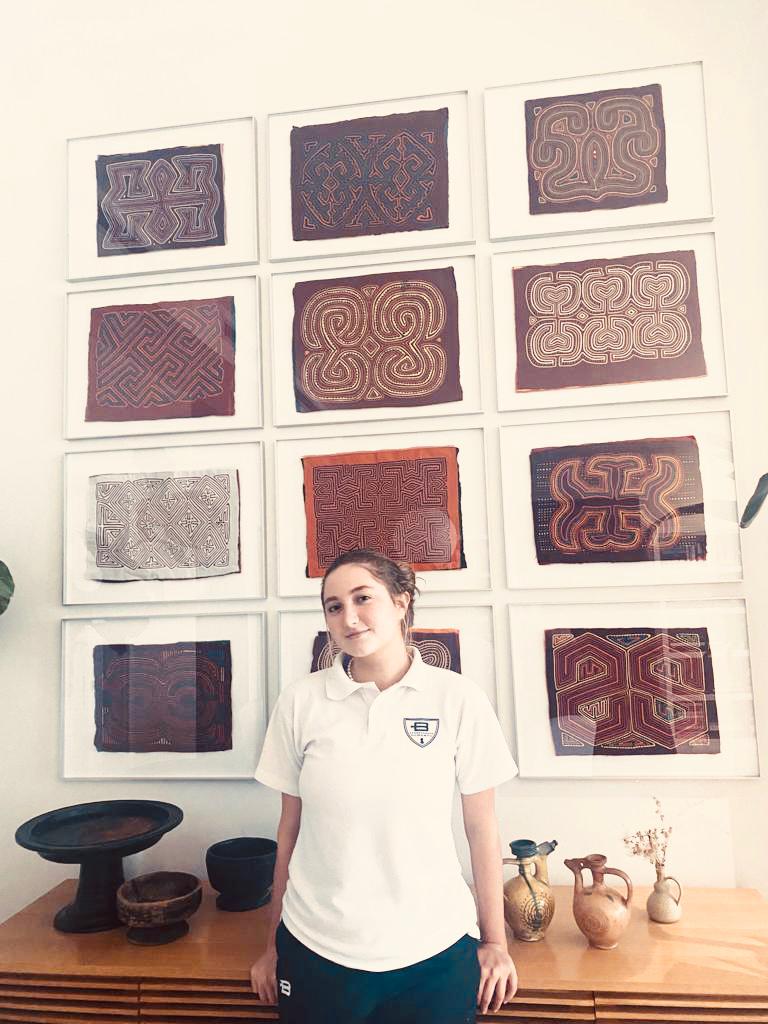
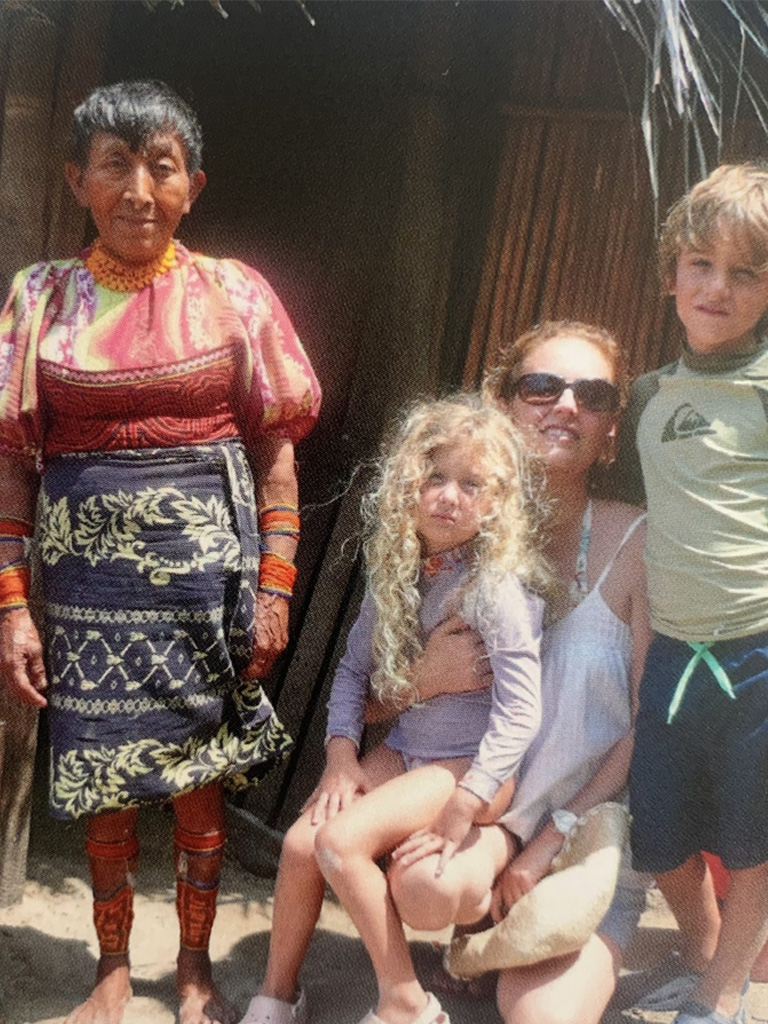
I am Emma Valencia, a high school 11th-grade student at Balboa Academy in Panama City, Panama. I was born in Panama, to an Argentine mother and a Panamanian-Brazilian father. I have always been passionate about art and learning about the different cultures and ethnicities of Panama. When I started thinking about how I could help my community and my country, and ultimately do my bit for the world, I knew I wanted to do something related to the arts. So here I am, trying to help sell these magnificent pieces of art through a self-managed business model so that the profits go directly and without intermediaries to the Guna women artists. Along the way, I met two wonderful women, Elina and Igua, and with them, I have been able to make this virtual store a reality.
Elina provides the molas made mostly by her mother and grandmother, as well as her aunts and other Guna women. Igua has an amazing sense of taste and the ability to keep up with new technologies and the media. She has been trained to manage the website and take care of packing and shipping logistics. When I leave Panama to start university, I will have left this business running and fully managed by these two women whose mission is to sell their art (molas) throughout the world and hopefully gradually add many Guna women who want to sell their molas on this page.
It runs in the family
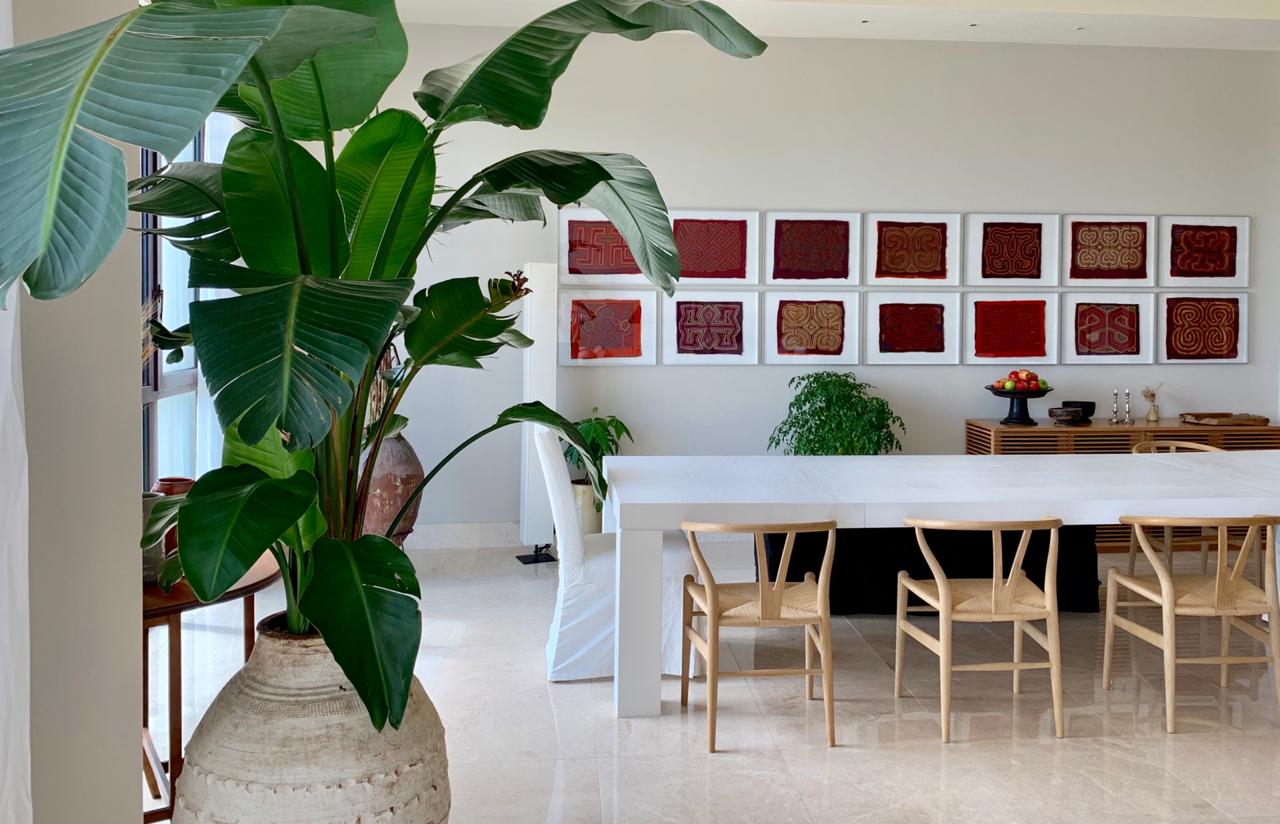
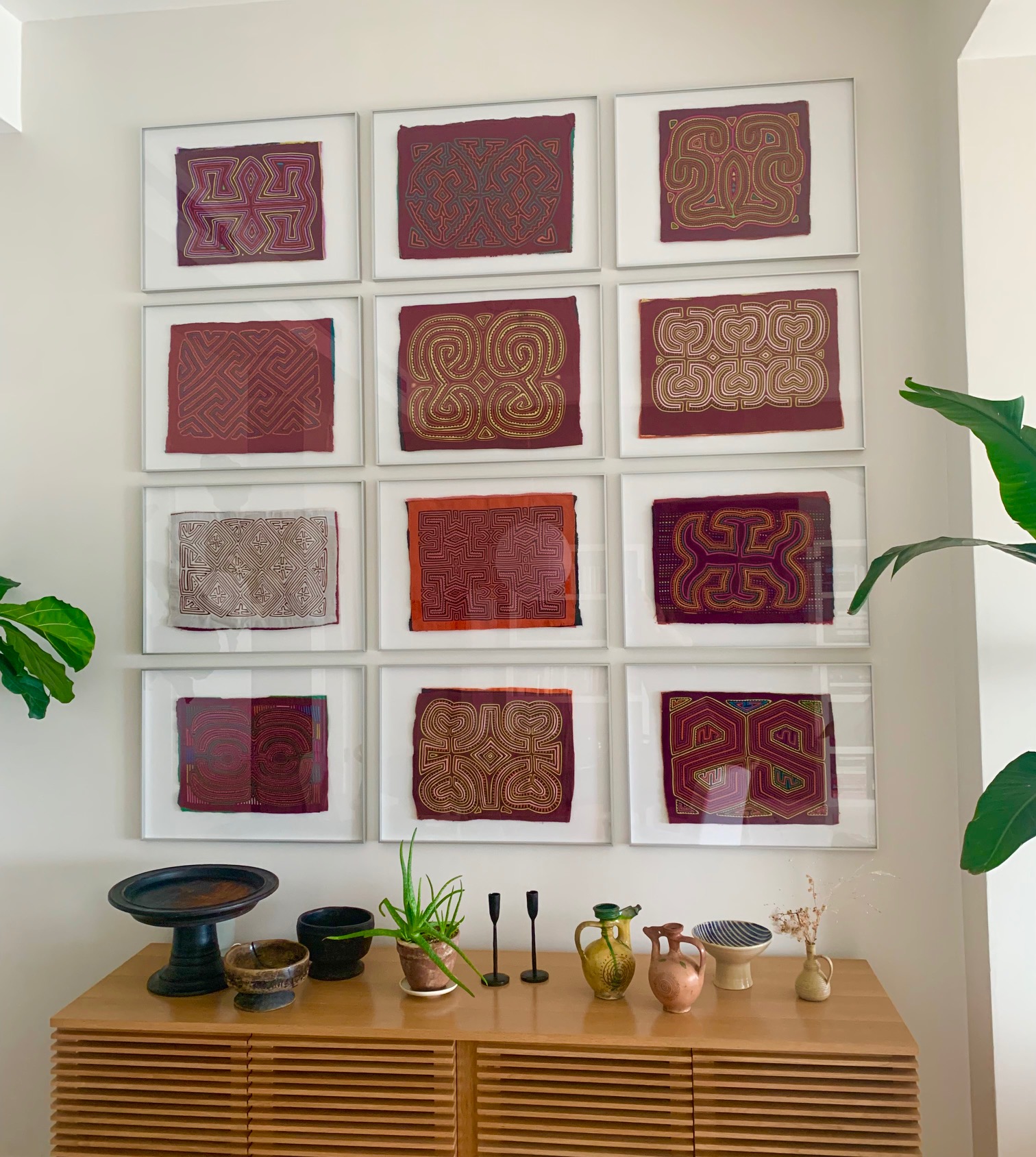
My connection with the molas came through my country and my mother. Since I can remember, I have always seen molas around me, in the streets of the Old Quarter in Panama City, in the living room of my apartment, or non-traditional ones created by my artist mother. Going back in time, I can identify this fascination for molas in my family. My mother, originally from Argentina, came to work in Panama many years ago and had an immediate crush on the molas; years later she produced a body of work of molas and exhibited them at a show called “mola-maps.” In the sixties, my grandmother, an Austrian raised in Brazil, and a graphic designer like my mother, also became fascinated by molas and framed several of them and hung them in her dining room as art. Years later my mother put those “vintage” molas from my grandma in the apartment where I was born.
While observing how my mother beautifully framed her collection of molas and showed them in our living room, I wondered why these beautiful molas were not displayed as actual art anywhere else. It also made me see molas as fine art, not only a craft that one can buy as a souvenir of Panama. Our molas have another dignity at home, they are presented as museum pieces, as pure art.
Hi, I’m Igua.
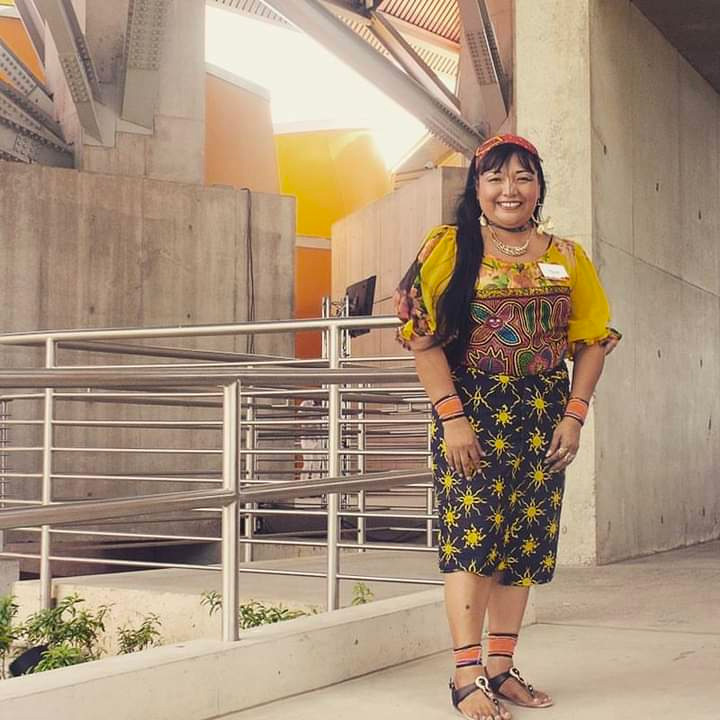
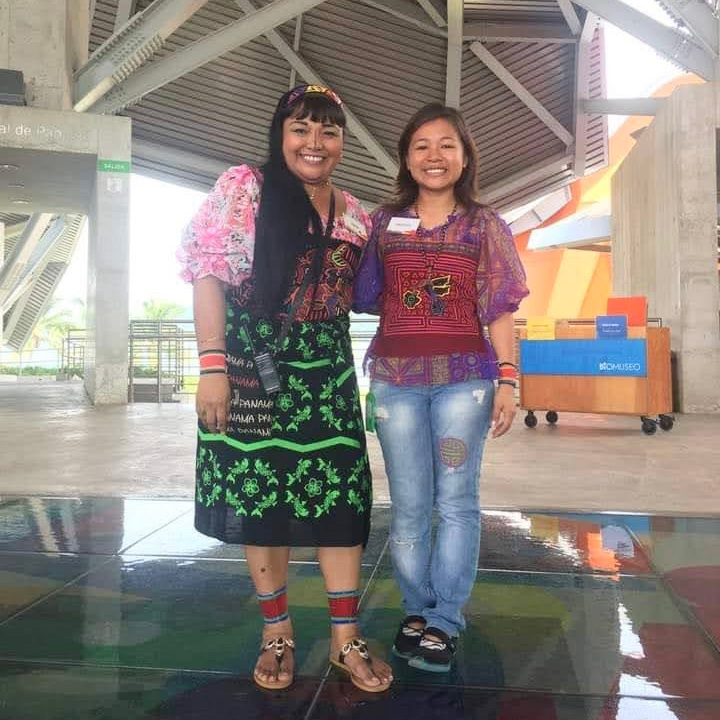
My full name according to our Guna tradition is Iguadindiligua, however, I usually use an easier name to pronounce in Panama which is Ivette Nereida Rogers Smith. I am 53 years old. I was born in the city of Panama, to Guna parents, originally from the Guna Yala region, on November 16, 1968. My home was a lower-class house. My father, an educator, and my mother worked at home raising the children and sewing molas. During my childhood and adolescence, my parents instilled in me the importance of education and love for our culture. Above all, my mother taught me how to make molas. When I was little, from the age of 7 I started sewing but, I also liked studying and since elementary school, I was a student motivated to work hard and I got scholarships that covered my education, from elementary to university.
I graduated from high school with honors and obtained a scholarship from the Panamanian Government and the Walton Scholarship from Harding University in Searcy, Arkansas in the United States. At university, I studied graphic design and learned to speak English. Languages open doors and I feel very fortunate to be able to speak Spanish, Guna, and English fluently.
When I returned to my country, the political and economic situation was very unstable so, for years I did various jobs. I love to draw, sing, and read poetry and books, scientific topics, and novels. My goal is to dedicate myself one hundred percent to the education of the new generations of my people, teaching them to value our tradition, history, and, of course, the art of making molas. I was unemployed since the beginning of the COVID-19 pandemic, so Emma’s initiative with The Art of Mola came at the right time because in my house we were experiencing serious economic needs. This online store will not only help me financially but also make my dream of making molas come true and help ensure that the traditions of my people are not lost.
At The Art of Mola, I am dedicated to managing our website, selecting and curating the traditional molas that we carefully choose from our community of artisans, and I also take care of the logistics of shipping the molas. I also produce special orders of some objects with molas applied.
Hi, I’m Elina
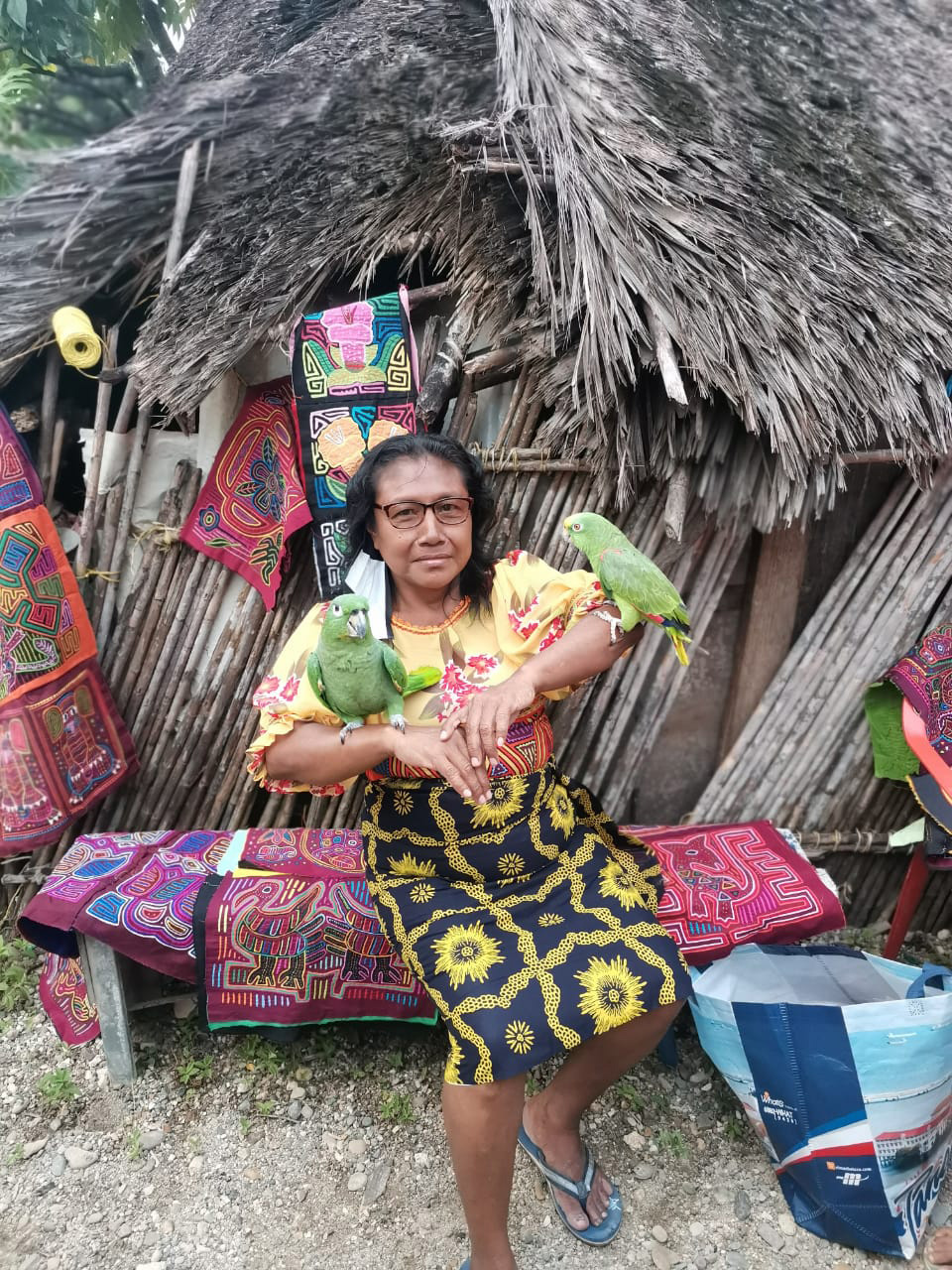
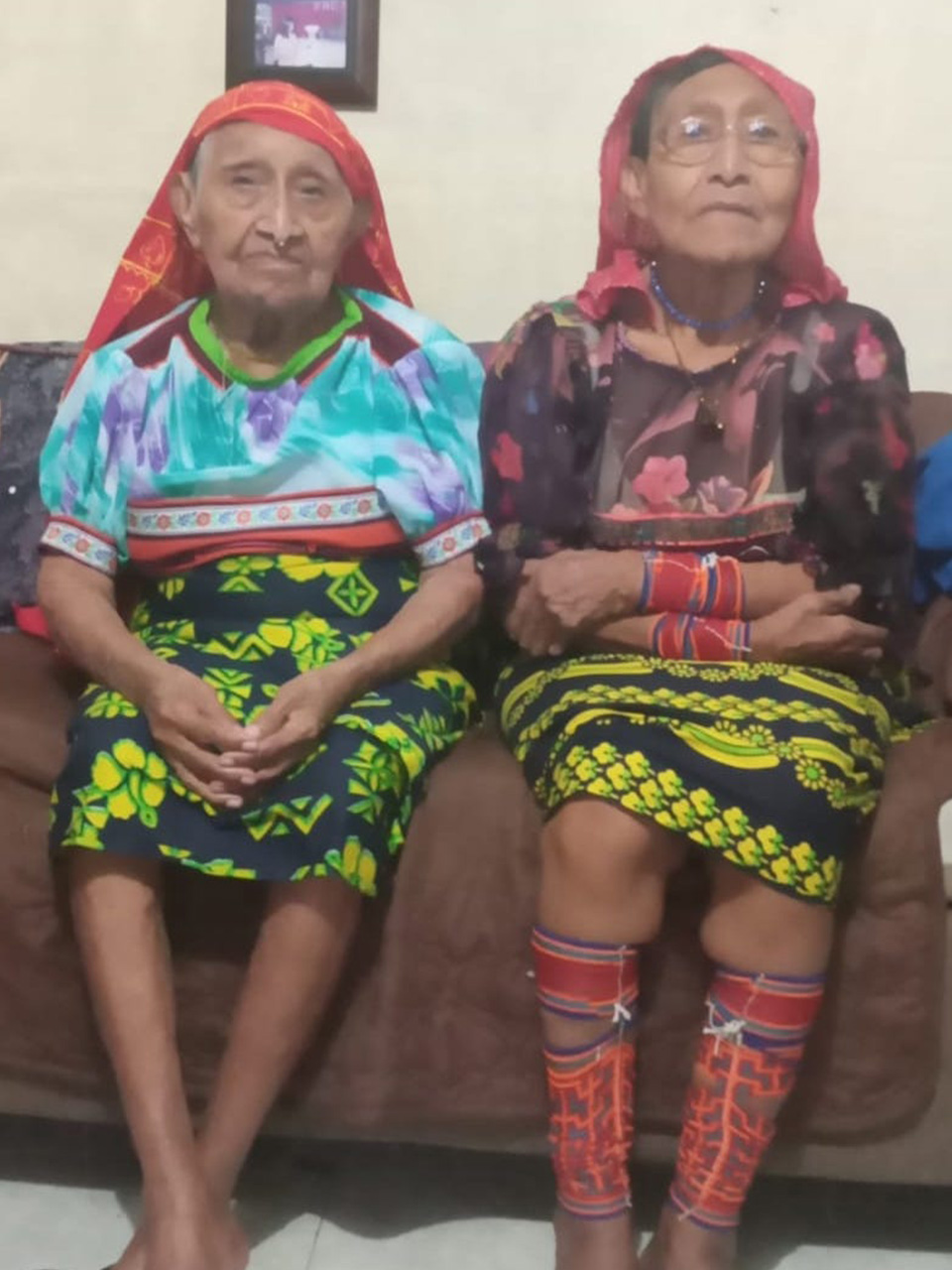
My name is Elina Valiente López. I am a 57-year-old Guna woman. I am a mother, grandmother, aunt, and teacher of high school students. I am a graduate of the Faculty of Agronomy of the National University of Panama, where I obtained a degree as specialist in Family and Community Development. My mother and grandmother always sewed molas and most of the molas offered in The Art of Mola are the work of the two of them. My mother’s name is Celina and my grandmother uses her name Guna Wagawigdidili. Although I have dedicated my whole life to working as a teacher, I have always been closely related to the world of molas, as I said, because of my mother and grandmother and, also because for many years I have had a small shop selling molas nearby Casco Viejo of Panama City, one of the most touristic areas. The molas mean a lot to our family, since, thanks to them my mother, my grandmother, and aunts have been economically independent women all their lives who have not needed their husbands’ support to live. At the same time, thanks to the profits produced, many members of our families have been able to study up to the university level.
Several of them are even notable people in Panama, like my brother, Arecio Valiente, a lawyer from our community and an active member of the Guna Congress. Just to mention a few other examples, my daughter, is a nurse, and my nephew, who has a master’s degree in business, is an entrepreneur and activist for the environment and the conservation of nature. In addition to my activity as a teacher, mother, and small business owner, with seven other women, I am part of an association that we call ourselves Las Guerreras (The Warriors). Our mission is to collect some funds, clothing, and food for people from our Guna Yala community who decide to come to the city for work or to study and need support. Almost all of us are already retired, but we stay active and working. I am very excited about Emma’s initiative to take molas to the next level. First, to use new technologies for their dissemination and commercialization, and second, to market them as true art. I am confident that this site will help our families recover from the tremendous post-pandemic global economic crisis and generate sustained development through a business model that is self-managed by Guna women without intermediaries.
Vision
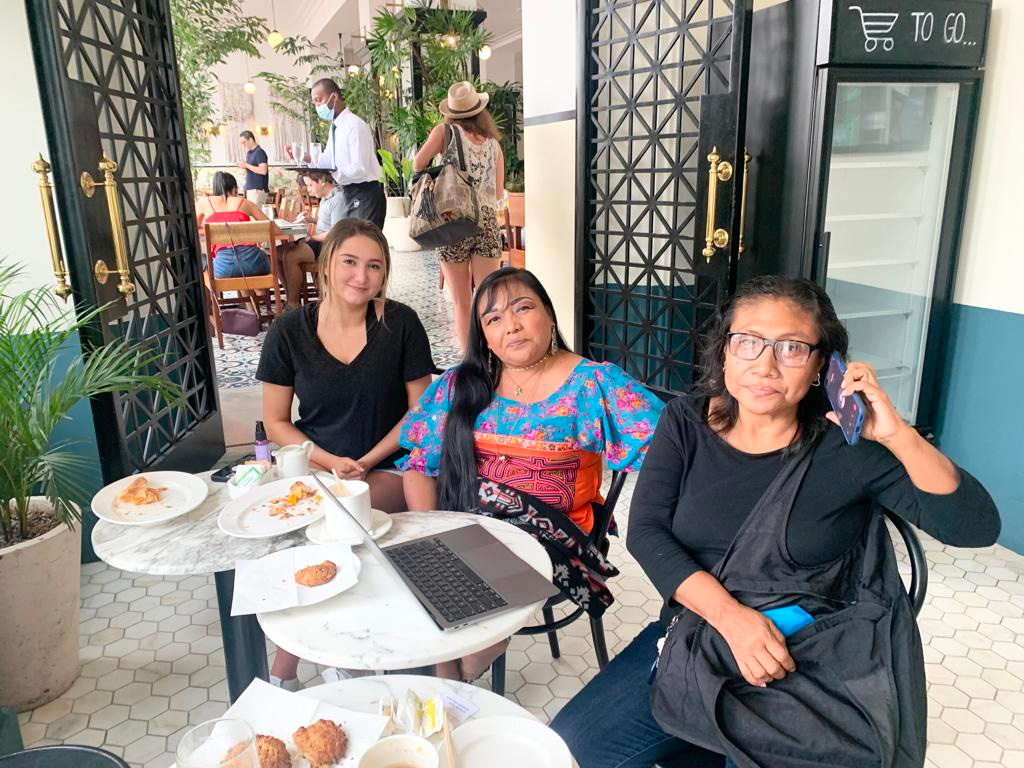
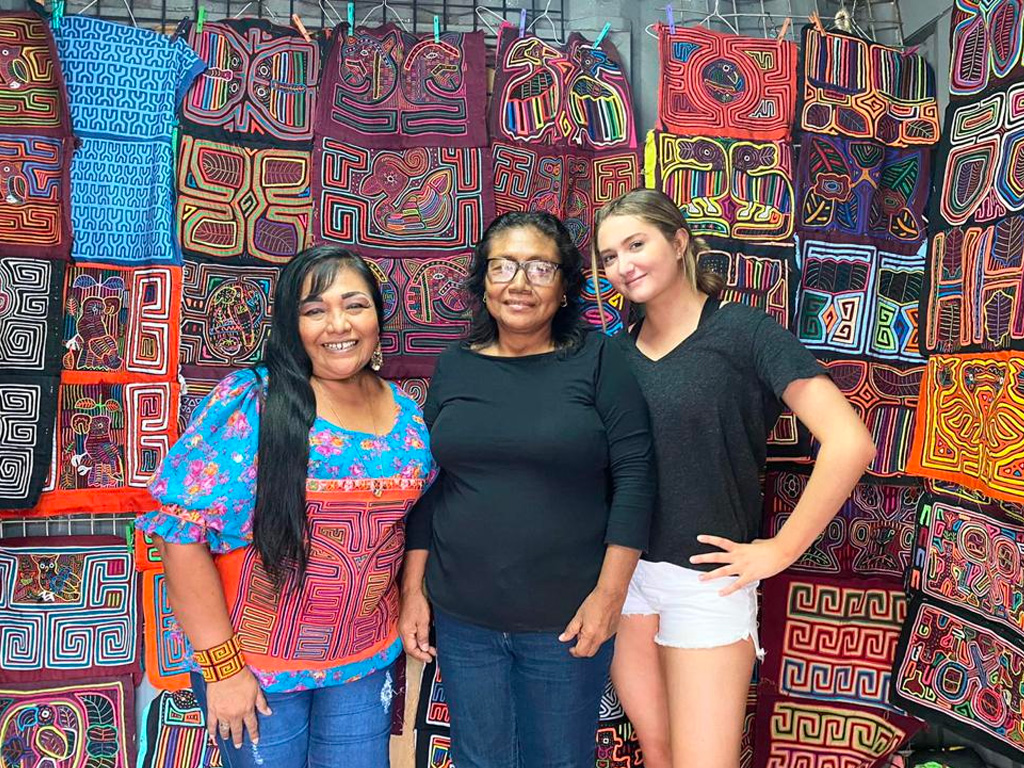
We see molas as an art, not as a mere commercial craft or a tourist souvenir. A mola is a one-of-a-kind piece that involves many hours (often weeks or even months) of creative and meticulous hand-made work made with specific materials and crafted using a refined and precise technique. Their designs are intricate abstract compositions rooted in the Guna traditional imagery. Thus, the purpose of this online store is to elevate molas to the right level they deserve: a piece of art.
Our hope is not just to help these women financially, but to promote the mola as fine art and to eliminate the narrative that mola is only street art or some tourist souvenir. The COVID-19 pandemic has paused almost everything and caused a strain on the economy.
It will probably take years to recuperate. There are no tourists or people coming, making it almost impossible for the Guna community to sell anything since visitors are the main customers. In The Art of Mola we manage the process of selecting and curating the most beautiful molas, taking into consideration aspects such as composition and technique. We only sell what is locally called “traditional molas” – in the streets of Panama one can also find molas with pop and commercial motifs that don’t reflect the real guna tradition. We do not sell this modern variation of the mola, as we want to celebrate and keep the original and traditional rich Guna imagery. The ultimate goal of this website is to help the Guna artists through this pandemic and beyond.
Eventually, we aim for this site to become a solid business managed by Guna women, and we hope it will continue to serve as a marketplace for their molas, and thus a stable source of earnings for their communities, for years to come.
